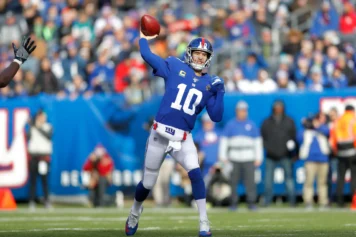Lee Daniels’ The Butler isn’t the best film I’ve seen in 2013, but it may very well be the most powerful. And not just for black folks either. As I sat in the pitch black screening room watching the movie, my attention was yanked away from the final few minutes of the two-hour film to a sniffling Caucasian journalist in front of me.
The Butler isn’t your typical tearjerker. It doesn’t go lunging at your heartstrings with trite tropes, but it will punch you in the face with its strikingly poignant story. It just depends on whether you get upset about the heinousness of the era or weep at the abuse that was endured. Impressively enough, The Butler manages to traverse the entire gamut of emotions –– from rage over the cowardice of cross-burning mobs to grief and intrigue over the Gaines’ family micro-drama.
At the core of The Butler is a contentious father-son relationship that pits Cecil’s subservient mindset in an elitist Northern society against his son’s militant attitude. Ultimately, neither of their stances are right nor wrong, but there’s a clear line of delineation in their plan of attack for how life can improve for African-Americans. There are also parallels in the father-son dynamic between the fictional Gaines’ and director Lee Daniels’ fractured relationship with his own father, who was at odds with his son’s homosexuality.
It’s easy to clown Daniels for his past shortcomings as a filmmaker. Before this film, the mention of Daniels got the M. Night Shyamalan “nah, I’ll wait ‘til it’s available on Netflix” treatment. Monsters Ball, The Paperboy and Shadowboxer were all critically panned and Precious won’t get much love from me either. Earlier in the year, leaked images of a Terrence Howard and Oprah scene were criticized mercilessly, but props must be given where they are due.
Naturally, Forrest Whitaker’s performance is already earning him early Oscar praise, but Daniels struck gold with this one. Meanwhile, Whitaker is beginning to make it a habit of being involved in the production of stirring films that evoke visceral reactions from moviegoers. Whitaker was also a producer for the Oscar Grant story Fruitvale Station and off screen, was stopped and frisked on suspicion of shoplifting — like he was riding with Winona Ryder or something — at an upscale Manhattan grocery store while filming Black Nativity in early February.
The Butler depicted the tension, injustice, fear and violence of the 1960’s civil rights movement in raw terms at an emotional level that eclipsed this year’s Jackie Robinson biopic.
Credit has to go to Danny Strong’s script. While 42 only dramatized a single season of Jackie Robinson’s career and sped through Robinson’s acceptance by Caucasian society, The Butler chronicled the tumultuous world through Gaines’ eyes from childhood through his golden years. Because of its fictionalized accounts of Gaines’ life as a White House fly on the wall, The Butler’s been tagged as the Black Forrest Gump. The two lead protagonists share the same strong, sluggish Southern drawl, but aside from Forrest Whitaker's first name, the comparisons don’t add up.
Besides, calling any vision another race’s version of a previous work is too simplistic, and creates the same type of cognitive racial division that Gaines’ generation rallied against. Rather, The Butler offers a more accurate portrayal of the struggle for equality. Brothas and sistas aren’t the only ones who should peep The Butler. Everyone should cop a ticket and take a closer look at “the struggle.”



